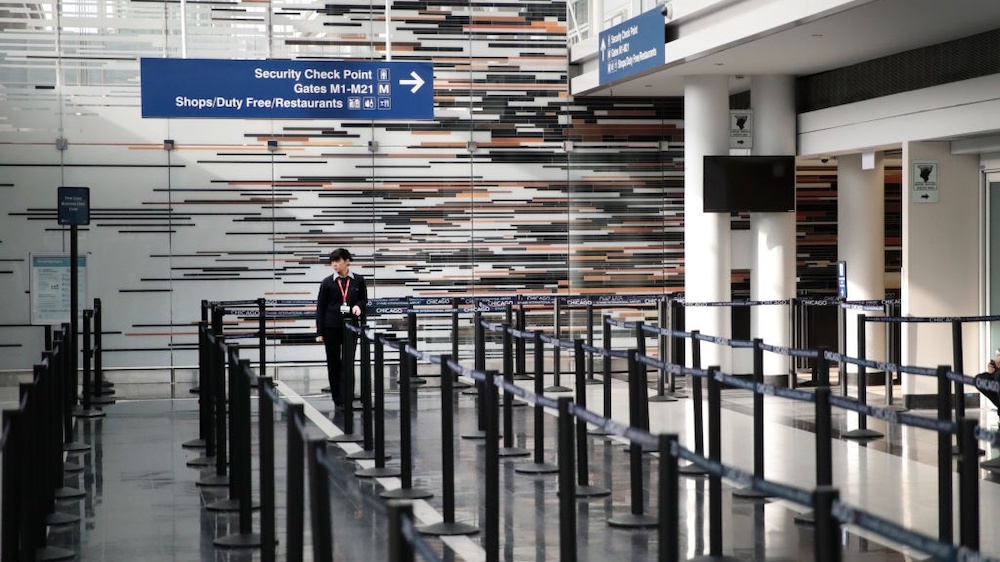If you’re interested in sharing your opinion on any cultural, political or personal topic, create an account here and check out our how-to post to learn more.
____
The Trump administration's most recent ban on immigration is newsworthy because it affects a cross section of people in the United States who have loved ones abroad who have applied for admission into the country. This is nothing to take lightly or to be dismissed. On one hand, it is new because it is supposed to be within the context of the COVID-19 pandemic. On the other hand, it is not new for Trump or the country.
Put another way, the first piece of legislation that was signed into law under the newly enacted 1789 constitution was the Naturalization Act. This act signaled very clearly who was viewed as worthy of citizenship and who was not. We know that Black people were included in the constitution as three-fifths of people for the purposes of taxation and representation. Native Americans were placed under the jurisdiction of the Department of War, and white women's citizenship rights were basically under their husbands. The Naturalization Act determined who could become a citizen through naturalization. This was preserved for white people. It remained in effect until the McCarran-Walter Act that was passed in 1952 — after World War II.
This leads to my argument that what Trump just imposed is not new. There were several legislative acts passed by congress that barred, banned or kicked out immigrants from regions of the world that are not fundamentally different from this new ban. Some of those that readily come to mind include: the Chinese Exclusion Act of 1882, the 1917 and 1924 Immigration Acts, and "Operation Wetback." For those who were not deported, measures were taken to make their lives insecure and to ensure that they did not enjoy the most basic citizenship rights. We need to look no further than the Foreign Miners' Tax laws of 1850 and 1852 imposed by California that targeted immigrants from China and Mexico. In addition, there was the Land Act of 1913, also passed in California. All of these measures were targeted toward immigrants who could not become citizens because the Naturalization Act of 1790 remained the law of the land.
What has changed in immigration law since the 1950s is that racist laws such as the Naturalization Act have been replaced with more inclusive laws that have allowed thousands of Africans and African descended immigrants to enter the country. As we know from Trump's very racist and disparaging characterization of countries where these immigrants come from, he intended for this ban to affect them, especially within the context of the Diversity Lottery. This has played a very positive role in allowing Africans and African descended people to legally enter the country. The new ban shuts down this avenue.
However, the exemptions may not close the door on all of them because doctors, nurses and those with special skills are exempt. We know there are thousands of Africans and African descended people who work in areas that are in the forefront of COVID-19 and they risk their lives and the lives of their loved ones on a daily basis in an effort to save the lives of all Americans, regardless of immigration status.
The other component of this 60-day ban is that one of the exemptions includes farm workers — read: men and women from Central America and the Caribbean. A lot of this farm work, particularly in the south, was done first by slaves and then their descendants. A lot of African Americans have moved away from the agricultural sector, thus the need to recruit temporary farm labor.
What I find to be very perplexing is that the very states that voted for Trump are often farm states that, on one hand, are anti-immigrant. On the other hand, they are very much in favor of allowing agricultural workers to enter the country on a temporary basis. This reminds me of when I was a participant in a program sponsored by the Illinois Farm Bureau — Agriculture Leaders of Tomorrow (ALOT). One of my colleagues would provide a presentation on immigration, how it was important and how it affected farmers and the economy. Most of them were halfway receptive until we gave presentations following 9/11. Whatever town we were in, it felt like a sundown town.
Although they were anti-immigration, they continued to rely on workers, who they all claimed came from Mexico, to work on their corn, wheat, soybean and dairy farms. The obvious question was why. One farmer recounted how he had tried to hire some local young men (read: white) for his dairy farm. In the end, they were either unable or unwilling to engage in this low paying endeavor.
Whether this 60-day ban is extended or modified, the U.S. will still continue to rely on immigrant labor to do the jobs that a lot of Americans, regardless of race, ethnicity and location, will simply no longer do. In addition, for those sectors that require certain levels of education and skills, such as doctors, nurses, engineers and those in certain technology sectors, the exemption will probably remain. However, those Africans and African descended immigrants may have to go through a battery of tests and be quarantined, but employers of all strips, who are dependent on immigrant labor, will continue to lobby for those exemptions.
